by Adelle M. Banks, RNS | Nov 2, 2021 | Headline News |
(RNS) — Sen. Raphael Warnock, who continues to pastor his historic Atlanta church while serving as Georgia’s first Black U.S. senator, has received the Roosevelt Institute’s Freedom of Worship Award in a ceremony focused on racial justice.
“I really felt that the strength of his pastoral voice was unique,” Anne Roosevelt, granddaughter of President Franklin Delano Roosevelt and board chair of the institute, told Religion News Service hours before Warnock was honored in a Wednesday (Oct. 13) ceremony.
“And now, he’s in this new role in addition to his role as pastor at the church, but his voice is consistently counseling, teaching, making himself vulnerable in order to help the rest of us make sense of the world,” she said.
Warnock, the pastor of Ebenezer Baptist Church, where the Rev. Martin Luther King Jr. was once co-pastor, was honored on the same evening with New York Times journalist Nikole Hannah-Jones. She was awarded the institute’s Freedom of Speech and Expression Award after spearheading the newspaper’s 1619 Project that explored the history and legacy of slavery in the U.S.
The senator, interviewed during the virtual ceremony by Community Change President Dorian Warren, said he views himself as a “pastor in the Senate,” reminding the powerful not to ignore people with no wealth.
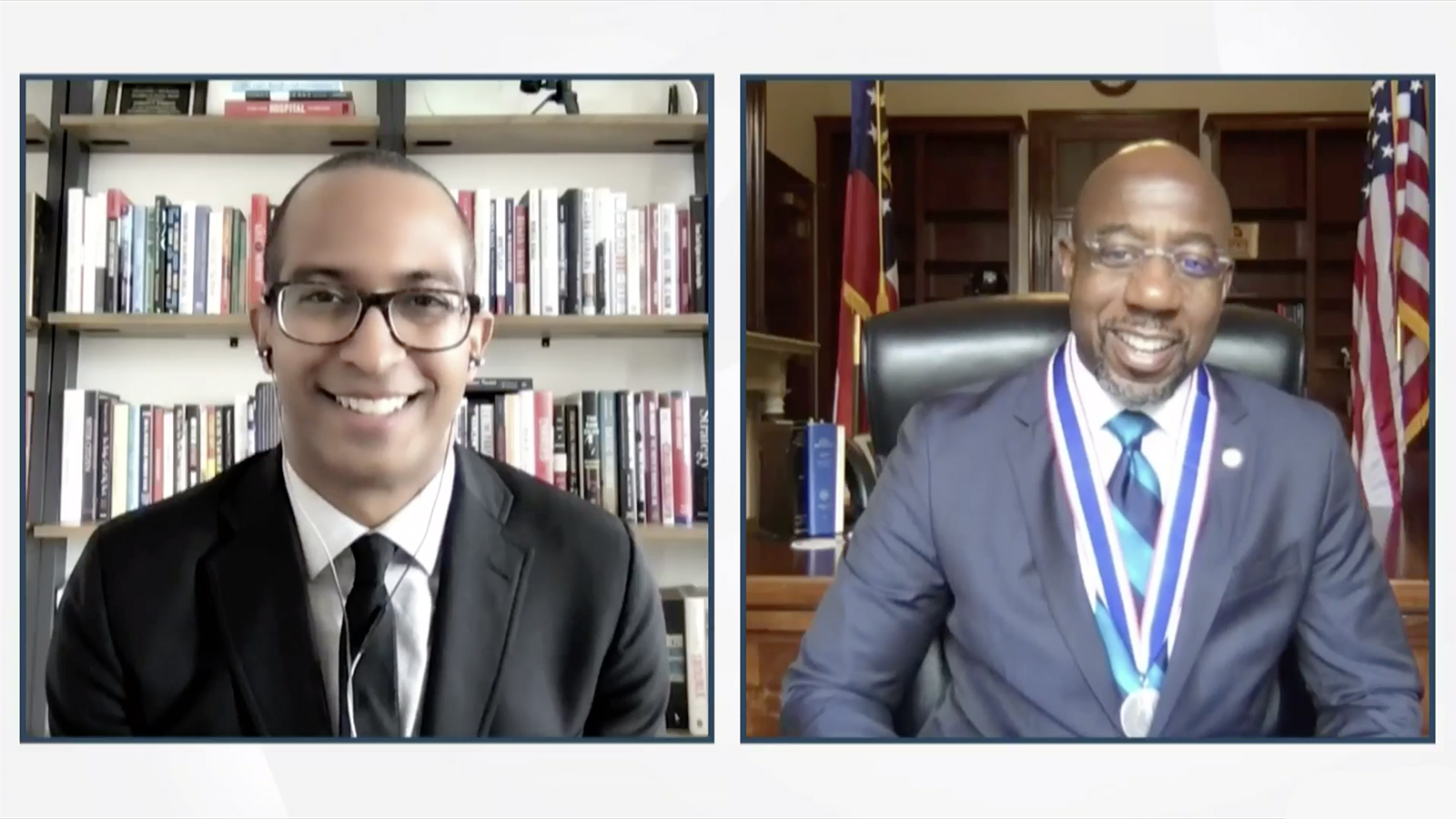
Dorian Warren, left, interviews Sen. Raphael Warnock during the Roosevelt Institute’s Four Freedoms Awards, Wednesday, Oct. 13, 2021, in a virtual ceremony. Video screengrab
“For me, faith gets engaged in the messiness of worldly struggle; it’s not hidden behind stained-glass windows,” Warnock said. “You probably could step over (the poor) but you shouldn’t. God warns us not to do that. My work is putting them always at the center. Because in their faces we see the face of God.”
The respective names of the Four Freedoms Awards are taken from fundamental liberties laid out in a 1941 speech to Congress by Franklin D. Roosevelt, who was elected to four terms in the Oval Office. He spoke of the “freedom of every person to worship God in his own way — everywhere in the world.”
His granddaughter, 73, said the institute, which has published reports and fact sheets on racial inequities, chose to take an “extra step” toward racial justice through this year’s awards.
“This is one event where we could say, ‘So what does it mean to be an anti-racist giver of awards?’” she said. “And to challenge ourselves and bring it to our own consciousness.”
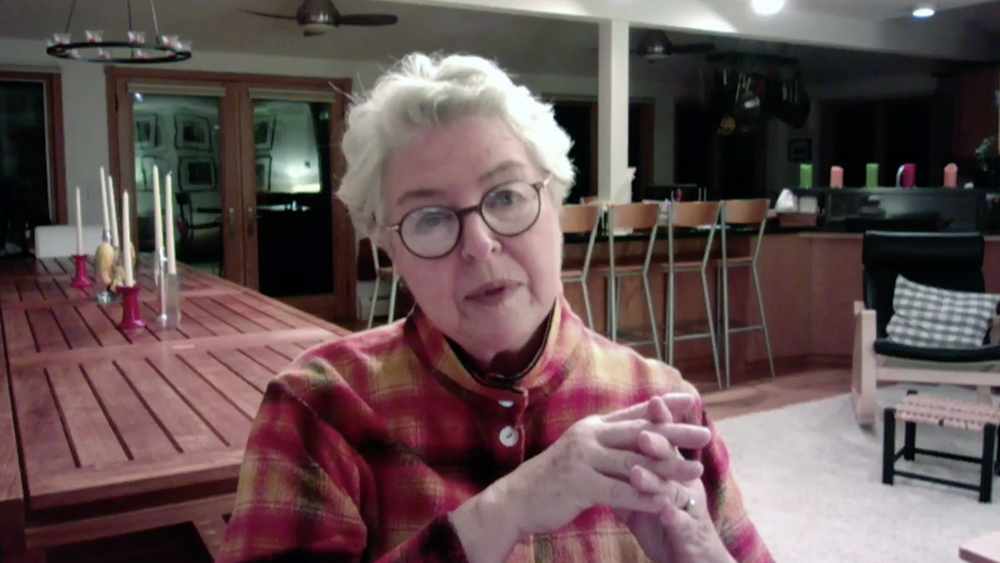
Anne Roosevelt opens the Roosevelt Institute’s Four Freedoms Awards virtual ceremony, Wednesday, Oct. 13, 2021. Video screengrab
Anne Roosevelt acknowledged that African Americans and other people of color were often left out of her grandfather’s New Deal reforms.
“We are still falling short of making sure that we deliver the same benefits of our democracy to every person in our country,” she said.
While Anne Roosevelt’s grandfather and grandmother, Eleanor Roosevelt, were lifelong Episcopalians, she said she was raised Catholic and is not currently affiliated with a denomination. But as a member of the committee that nominated Warnock for his award, she said she appreciates him as a leader and as a person of faith.
“I don’t often reflect on Jesus, but when I do, I picture him being surrounded by the people who followed him,” she said. “He taught them how to live, how to live as the fullest and best expression of humanity. And I feel like Senator Warnock is in that mode.”
by Jelani Greenidge, Urban Faith Contributing Writer | Mar 25, 2019 | Entertainment |

CHURCH OF BASKETBALL: Blazersedge.com managing editor and Lutheran minister David Deckard is part sports journalist / part online pastor.
David Deckard, like many pastors, is bivocational. He works another job, squeezing it in alongside his role as clergyman, husband, and dad. But unlike many pastors, who might hold jobs in sales or construction, his other job is in sports entertainment — specifically as the managing editor of Blazersedge.com, the leading source of fan-based coverage of the Portland Trail Blazers professional basketball team. Part of the SBNation, Blazersedge stands apart from other sites because of the rich sense of community its members provide.
And in the center of it all is Deckard, the man known to the masses simply as “Dave.”
As a Portland native and devoted Blazers fan, I sat down with Deckard for a wide-ranging interview covering the curious intersection of sports and faith.
JELANI: Given your lifestyle as both pastor and sports blogger, give us a little background on how you got into these roles. Plus, how did you become affiliated with Blazersedge?
DAVE DECKARD: Hah! I could tell a thousand stories about each of those things.
I grew up in a very non-churchy-type family. I sang in a Catholic boys choir when I was 10 or so, and that was it. But my high school choir director took a job at a downtown Portland church and I wanted to sing with her after I graduated, so I started singing in that church choir. That’s where I got my first inkling that God was a decent person to know and that faith might be part of my make-up. I went from that to a summer as a counselor at a church camp, then another, then youth directing, then to seminary. So be careful what you do! God is sneaky like that. You go in one day just wanting to sing a little and BAM! You’re working for the guy for life.
I’ve been a Blazers fan since I was quite young. It’s all I cared about as a kid. I went through all the ups and downs. When the Internet came in vogue, I got mixed up with an e-mail group talking about the team. A friend was blogging for the local paper’s website, and he became part of the group. He had to leave for a short emergency trip and asked me to fill in for him for a few days. I did and got the bug, then started my own site. Casey Holdahl, now with the Blazers, was running Blazersedge.com at that time. He left and contacted me about taking over Blazersedge. The rest is history.
So be careful what you do! You just start chatting about the Blazers and do a favor for a friend one day and BAM! You’re the managing editor at the biggest Trail Blazers site in the world.
As a pastor who also operates in the public square, I think you have an interesting perspective on practical theology.
Personally I think theology suffers when placed in the abstract, such as, “I believe in Doctrine X.” So often that’s a shorthand way around knowing people and God, instead of an invitation to know both better. Doctrine is like underwear. It’s indispensable, but meant to support the rest of the stuff you’re wearing. If you’re just into flashing the doctrine in public, people should run.
I’m Lutheran, to be specific. But even people within a denomination usually don’t know or understand its teachings fully. The best thing to say is just, “Let’s talk about God and life and such and you’ll get the idea.”
A few years back, I was trying to explain to my wife the significance of Blazersedge in the life of an average Blazers fan, and your role with it in particular. And I think it was after reading a commentary you wrote that touched on the whole Erin-Andrews-hotel-room thing that, in my attempt to contextualize the situation, I referred to you as “the Internet pastor of Blazer nation.” Is that a fair label, informal or not?
I haven’t heard that one before! I suspect plenty of people would bristle at that, either because the pastoral relation implies voluntary consent or because the entire idea is anathema to their worldview. However, it’s accurate to say that my outlook (read: faith) determines how I speak, how I react to folks, and in general how the site functions.

UPS AND DOWNS: After a string of misfortune with once-promising players, forward LaMarcus Aldridge is one of the few solid players left on the Blazers’ roster. (Photo: Mark Halmas/Newscom)
Oddly enough, most people misread the role faith plays. They assume that our site’s non-profanity rule stems from a religious source. I am not overly offended by swearing in personal conversation, nor do I find it more ungodly than a hundred other things people do every day. The no-profanity thing is out of concern for public decorum and being welcoming of all people without having something as insignificant as swearing get in the way.
That’s where the real faith issues come in: Diverse voices are welcome, you’ve been given power to add to this conversation, use that power for good, and frame your assertions to welcome others as you’ve been welcomed. People get banned at Blazersedge for one reason: they’re exercising their power of speech for the good of the self, hurting or ignoring others in the process. That’s a statement of faith — valuing the neighbor as oneself translated to Internet conversation.
In my writing I try to be fair and thoughtful, to treat my subjects like real people and not just objects, and to do justice to the topic instead of writing to gain more traffic for myself. I try not to take things too seriously, as a sense of humor is an asset to faith. I don’t draw too much of a distinction between my on-site life and the rest of my life. I try to write in such a way that I could be held accountable for what I say. So I guess in that way you could say that my approach is pastoral. But it’s found more in example than preaching. I’m not the center of attention. Just like church isn’t about everybody looking at me, but all of us discovering God together, the site isn’t about everybody looking at me, but all of us discovering the Blazers together.
The best compliment I get regarding faith — and it happens reasonably often — is when Blazersedge folks find out what I do for a living and say, “I didn’t know you were a pastor, but that makes total sense now that I think about it.” Instead of faith being this distinct moment with a distinct person separate from “real life,” it’s breathed in organically in the course of doing what you love. It’s not about me or you, it’s all around, filling the space between us and making things good whether we realize it or not.
People often equate intense sports fandom with religion. In a post, you once compared sports teams with churches in the sense that they are both public trusts that have strong traditions, but at the end of the day the people who work there are still responsible for making their own choices and protecting their own financial interests. You were trying to balance the perspective of fans who expect loyalty from their sports heroes but treat them as fungible assets when they don’t perform up to expectations — such as with Blazers point guard Raymond Felton. In your opinion, is there more loyalty in the church compared to the sports world? Should there be?
Oh yeah, Felton was about as fungible as it gets.
Back in the day, multiple ties bound people to their church. Doctrine was part of it but social ties, ethnicity, and survival in this strange New World (cultural, if not actual in the form of propagation) made church all but inescapable. If you came here as an Italian Catholic you couldn’t very well flip to a British Episcopalian without losing your identity and community. As descendants in successive generations identified as American, those ties loosened. But even then the idea of “American” and “good, church-going person” were intertwined. You might not go to your grandparents’ church but you went to some church … at least on Christmas and Easter.
In the post-’60s world folks began to question what it meant to be American, even. In most groups ethnic ties had disappeared, now national ties were following. Then came instant global communication and all of a sudden you didn’t have to be tied to local neighbors at all. You could talk to anyone and get anything you want, with the push of a button. In this environment churches have become fungible. Only those truly interested in faith (or too stubborn to let go of the old culture) remain engaged. Even among those, most won’t remain at a church that doesn’t closely align with their personal convictions.
In spirit, loyalty is still a part of the church relationship. In practice, it’s at an ebb … it has to be taught where it was once assumed.
So, do you think we’re worse off today?
Actually, there are good things about this. Those cultural and national ties overwhelmed faith back in the day. Church served the cultural perception rather than transcending it. Faith bound in service to anything but God is not faith at all. We don’t have to worry about that now. People participate in church because they desire a relationship with God, not because it’s the thing to do. Oddly enough, it’s far easier to hear God without all the cultural expectations getting in the way. I actually prefer the small, wandering group of faithful seekers to the large congregation of “good people” set in their ways. We’re just now rediscovering what faith is supposed to be.
I’m not as conversant with loyalty trends in sports but I suspect pro leagues, at least, follow the same trend. We’ll always have diehard Steelers or Blazers fans just like some folks will always be “church goers.” But most folks have a myriad of choices for their leisure time and disposable income today. Teams can no longer assume their fans will follow. The fans that do remain tend to be more knowledgeable and involved and demand more from their teams.
So is that a lesson for church leaders, too?
I believe so. It’s not enough to have just the name anymore; you have to show quality to keep folks engaged. The uniforms still said, “Trail Blazers” in 2011-12 but few fans felt that Ray Felton and company reflected true Blazer basketball. Their complaints and rejection of the product reflected that. For years people of faith have been willing to swallow almost anything that claimed a “Christian” label no matter what it said. If some idiot gets on TV and says he’s for God or a presidential candidate shows up at a church one Sunday they’re supposedly “on our side.” People of faith need to be more discerning. You’ll know where a person’s coming from by the fruit they produce. It’s not enough to divide the world into teams and then say you’re on the right one. Your claims and actions have to do something good in the world before they can be considered godly. Otherwise the uniform you’re trying to claim doesn’t matter.
Yeah, I think it was Jerry Seinfeld who, in a moment of existential gloom, referred to sports fandom as essentially “cheering for laundry.” There are few things more disaffecting than the realization that your emotional investment is not going to yield the dividends you hoped for, and that’s true in the church as much as it is in sports.
Speaking of which, many fans will look at the 2011-2012 Trail Blazers season as The Year the Dream Died, with Roy announcing his sudden retirement, Greg Oden being waived, Nate McMillan being fired, etc. And when I think about some of my episodes of basketball-related frustration (the Western Conference Finals in 2000 come to mind), Kubler-Ross’ five stages of grief strike a familiar chord.
Do you find much correlation between the work you do as a pastor to walk your parishioners through grief and the way you help Blazers fans cope with wave after wave of disappointment?
There’s overlap, for sure. Grief is grief. I remember the Western Conference Finals loss in ’91 almost like a death. It was, really … the death of a dream. It hurt. We certainly do our fair share of putting things into perspective, reminding that there’s goodness that circumstances can’t touch, that there are reasons to believe, that the important part is taking the journey together instead of the lumps you take on the way.
But the roles of “journalist/analyst” and “pastor/counselor” also differ significantly. At the end of the day my role at Blazersedge is to speak the truth as I see it. I make bold proclamations about the Blazers’ prospects that I’d never make to a person sitting in my office in crisis. In counseling it doesn’t matter what you know and feel, it’s what the person in need knows and feels. Sports are more predictable and less important ultimately. They also lie outside of the domain of any individual. Abstract truths become more valuable in that kind of situation. Truth is truth in this venue in a way that isn’t possible in interpersonal relationships.
I find myself contradicting the popular wave of opinion at Blazersedge far more often (and stridently) than I’d contradict a parishioner making decisions about their own life. When the Blazers started this season 7-2 but still evidenced serious holes, I went ahead and spoke out about it. I probably wouldn’t do that so baldly in church because people need to figure that out for themselves.
The other overlap is trolling. Trolls blossom on websites and in churches alike. I must admit having to deal with trolls online has better prepared me for the unhealthy, bad behavior that people sometimes evidence in church. Whatever unfair tactic they’re using, I’ve probably seen it before. I’m much more forward in pointing out those things now than I was before my online experience.
As you know, Dave, fans can get really crazy. Sometimes it’s just fun, but at times it goes too far — like pouring beer on the opposing team’s star player. What do you say to people who really want to enjoy the emotional thrill ride of sports, but who don’t want to totally lose their minds or souls? What are some healthy ways of expressing fandom?
The idea that you can be one person in one venue and a different one in another is overblown. I’m thinking primarily of the Internet here, but I suppose it also applies at the arena or stadium. Your environment will influence your choices. But even allowing that environment determines methodology, you’re still either going to conduct yourself with honor for the greater good or you’re going to make it all about yourself and how you can get ahead. You can’t let that self-serving, “screw everyone else as long as I get ahead and look good” mentality take hold. As soon as you start basing your decisions on that, it’ll color the rest of your life. You can’t really pretend to be a jerk without actually becoming one. That’s true whether you’re clocking somebody from behind on the floor or abusing someone on a website. Act in ways that honor the people around you no matter what the venue (even when arguing or playing against them) and you’re going to bring something good to the world. That’s true whether you’re playing sports, talking about them, or just watching them while your kids say, “Daddy, can you play with me?”
Once again, bigger life lessons from the world of sports …
One other disturbing parallel I’ve noticed about people losing perspective: whether it’s in sports or church, folks seem to value being right more than enjoying the experience and each other. Both sports and faith are communal endeavors. Yet people use their knowledge to try and prove they’re better and/or more correct than the other person. This is silly. What’s the point of following sports at all if you’re not enjoying it with the people around you? The striking phenomenon from the ’77 championship in Portland wasn’t just the title but also the massive parade and community unification in the wake of the event. Fandom requires company to reach full flower. When you destroy the community to exalt yourself, you’re winning a Pyrrhic victory at best.
The phenomenon is even more ridiculous when applied to faith. If any of us could have gotten it right, there would have been no need for Jesus to die for us. God would have simply said, “Nice, Bob! I’ve been waiting forever for someone to get it! Come on up to heaven, you perfectly correct dude, you!” Since Jesus, you know, died for our sins, that seems to imply the necessity and thus our falling short. In many ways arguing about who’s the most correct is arguing who needs Christ the least … a curious argument for Christians to try to win. Missing the greater picture in favor of making your point is a bad idea whether you’re in an online forum or in church.
It seems like it all comes back to the question of “How do we build, sustain, and reflect authentic community?” In what ways can you see the communities of sport and faith combining for the greater good?
There’s always potential. Every year we hold “Blazersedge Night” where the people of our community donate to send underprivileged young folks to a Blazers game. Last year we exceeded 700 kids and chaperones sent so we know people are willing to participate in something good.
I think you’ve hit on the main point, though … it has to be something good, as in “service to others.” Much of the overt “Christian” presence I see online (and I use the term loosely) makes me shudder. People screaming at each other, dividing the world into camps and picking fights, gloating over people’s misfortunes and saying, “I told you so.” It’s not everybody, of course, but it doesn’t take too much of that to turn the name sour. I had to spend years online showing who I am and what I’m about before I was overt at all about my profession. The field has been poisoned enough that when people hear the name “Christian” or “church” they’re just as likely to run or scroll onward as to engage or be curious. So modeling Christ-like behavior online might be the first commitment we sports fanatics all need to make.
by Dawn Herzog Jewell | Aug 22, 2012 | Feature, Headline News |

SHARING THE BREAD OF LIFE: When not making biscuits at a local restaurant, Democratic Republic of Congo refugee Benjamin Kisoni pastors a congregation of African immigrants in Tennessee. He awaits asylum in the U.S. and dreams of reuniting with his family. (Photo by Dawn Jewell)
Benjamin Kisoni’s recent life reads like the story of a modern-day Joseph. But instead of donning a fine multicolored robe, he ties apron strings in pre-dawn stillness. His fingers freeze mixing chilled buttermilk and flour. He is preparing the day’s first biscuits at the fast-food restaurant Bojangles’ in Jonesborough, Tennessee.
Until three years ago, Benjamin had never tasted a biscuit in the eastern Democratic Republic of Congo. Amidst the region’s ongoing turmoil, he was pastoring a Baptist church and publishing a Christian youth magazine. But in 2009, five times men assailed his house, seeking to kill him. Each time Benjamin evaded them. Desperate, he fled to the U.S., leaving behind his wife and eight children (ages 14 to 30) and effectively shutting down his family’s printing business.
Benjamin was targeted because he pursued a court case for his brother’s assassination. Hired gunmen had murdered his brother, a veterinarian and businessman respected for his humanitarian works. Local influential leaders had feared his brother’s increasing popularity.
“I love my country and wanted to help change it by writing. I never imagined I’d be chased from it,” he says. He and his wife reluctantly agreed that his leaving the DR Congo was the best chance they had for everyone to survive. So in May 2009, the beleaguered pastor arrived with one suitcase in small town America, welcomed by his sister and her husband.
Since then, Benjamin’s faith has been refined. After applying for asylum and while awaiting a work permit, Benjamin penned his story on God and suffering to encourage his fellow countrymen. “The ink which wrote this book is my tears,” he says. The book, “God, Where Are You?” will be released later this year by Zondervan’s Hippo imprint.
Biscuits for Jesus
Five days a week Benjamin rises at 3 a.m. to pray and read Scripture. His eight-hour shift begins at 4:30. He has honed the science of Bojangles’ made-from-scratch buttermilk biscuits.
“It’s non-stop work,” he says. But God prepared Benjamin via his Master of Theology thesis on the ethics of work years ago.
Last year Benjamin was promoted to Master Biscuit Maker, training new hires from other restaurants. On their first day, he tells each trainee: “I’m a Christian, I love God…The manager may be present or not, but I know God is there. I’m working to please God.”
God, in turn, has blessed the work of his hands. Business has improved at Benjamin’s Bojangles’ location since he started working there, his boss told him. Three times his manager has nominated him “employee of the month.”
Each month Benjamin wires home a large portion of his meager salary to provide food, medicine and rent for his family. It’s not how he imagined supporting them or rebuilding his nation. But he has accepted God’s plans.
Silent worship carries Benjamin through hours of biscuit-making. As the batter forms a ball, he softly sings in French:
“Here is Good News for all who are disappointed;
He offers better than anything we’ve lost,
Because what we see is not all there is,
His provision never ends…” (English translation)
“I used to think you can go through suffering and then reach victory on the other side. But I’ve learned that when you are in the midst of suffering and have hope in God, that is victory,” he says. Like Joseph, this suffering servant in exile has excelled, trusting in God’s plan.
An African Billy Graham
God keeps confirming the strange twists of Benjamin’s life. Twelve years ago, he dreamed he was helping to build a church, oddly within a bigger church. Today Benjamin is senior pastor to a fledgling congregation of local African immigrants. It meets within the larger American Grace Fellowship Church.
On a recent Sunday, 50 men and women, and more than 25 children from Ghana, Liberia, South Africa, Ivory Coast, the DR Congo and Cameroon filled chairs. The International Christian Fellowship formed in 2009 out of a Bible study to meet cultural needs that American churches couldn’t.
From the pulpit, Pastor Benjamin preaches the Word clearly and simply; Billy Graham is his life-long model. As a pastor’s son, a young Benjamin devoured each new issue of Graham’s Decision magazine. Today he avoids theological debates and exhorts congregants to imitate Jesus. The church is slowly expanding.
Besides discipling fellow Africans, Benjamin has helped Bryan Henderson, a bi-vocational pastor and financial advisor, grasp God more clearly. The two men email, pray and meet regularly as friends and accountability partners. “I’m white, he’s black. I grew up with privilege and he grew up with poverty,” Bryan says. “We had nothing in common, but everything in common. We had the Holy Spirit guiding us.”

BI-VOCATIONAL BROTHERS: Bryan Henderson (left), a pastor and financial advisor, met Benjamin during a time of personal despair. “He helped me see that man does not live on bread alone,” says Bryan. (Photo courtesy of Bryan Henderson)
The two men met shortly after Bryan had lost his job with financial giant Merrill Lynch. Benjamin’s deep faith amidst persecution and trials “really helped me see that man does not live on bread alone,” Bryan says. Now they discuss church leadership issues, American and African culture, and Scripture passages.
A strong daily dose of God’s word sustains Benjamin’s hope. “People here want fast food, fast cars, fast this, fast that. They haven’t learned to wait patiently on the Lord,” he says.
Recently he resonated with the three women who carried spices to Jesus’ tomb, despite awareness they couldn’t budge the boulder at the entrance (Mark 16). “The women could’ve stayed home, but they didn’t,” he says. “So I said, ‘God, I have many stones in my way. I believe you will remove them.’”
A Place to Call Home?
The biggest stone in Benjamin’s life is his asylum case. Last year the U.S. granted asylum to about 25,000 people seeking sanctuary, although three times as many applied here. Like refugees, asylum seekers flee their home countries because of persecution or well-grounded fears thereof, based on race, religion, nationality, membership in a particular social group, or political opinion.
 Back home, Benjamin is sure he would be killed. His family is scattered across the eastern DR Congo, too afraid to return to their house but tired of living in limbo. Recently his daughter texted him, “Dad, I want to go back home. If they will kill me, let them kill me.”
Back home, Benjamin is sure he would be killed. His family is scattered across the eastern DR Congo, too afraid to return to their house but tired of living in limbo. Recently his daughter texted him, “Dad, I want to go back home. If they will kill me, let them kill me.”
This May an immigration judge denied Benjamin asylum, claiming inadequate grounds. His lawyer is appealing, but the process could last years.
Massive backlogs of asylum cases sit in the vastly under-resourced U.S. court system, says Lisa Koop, managing attorney of the National Immigrant Justice Center (NIJC), a Chicago non-profit. Anxiety for family members still facing danger back home is a huge stressor for asylum seekers, Koop says.
In recent months, fighting between marauding militia and the army has increased in the lush green hills of eastern DR Congo, near Benjamin’s hometown. Despite peace accords signed in 2003, 5 million people have died since 1998 in the world’s deadliest conflict. The current battle for power, the region’s mineral wealth, or security originates in the 1994 Rwandan genocide, and the subsequent flight of Hutu civilians and militia into the DR Congo.
Meanwhile, Benjamin looks beyond the American dream, “longing for a better country, a heavenly one,” he says (Hebrews 11:14).
“I trust God because He’s sovereign. I’m not asking the ‘why’ questions,” he told Bryan after his case was denied.
The final pages of Benjamin’s story are unwritten. Meanwhile, reads his book’s epilogue: “I thank God for my suffering. He made himself known to me, and through them he has allowed me to comfort others.”
>>Take action: sign up for action alerts on issues and legislation on immigration reform from the NIJC.
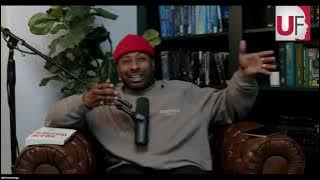
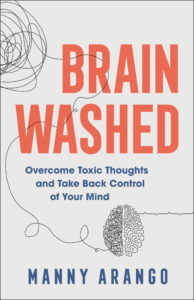


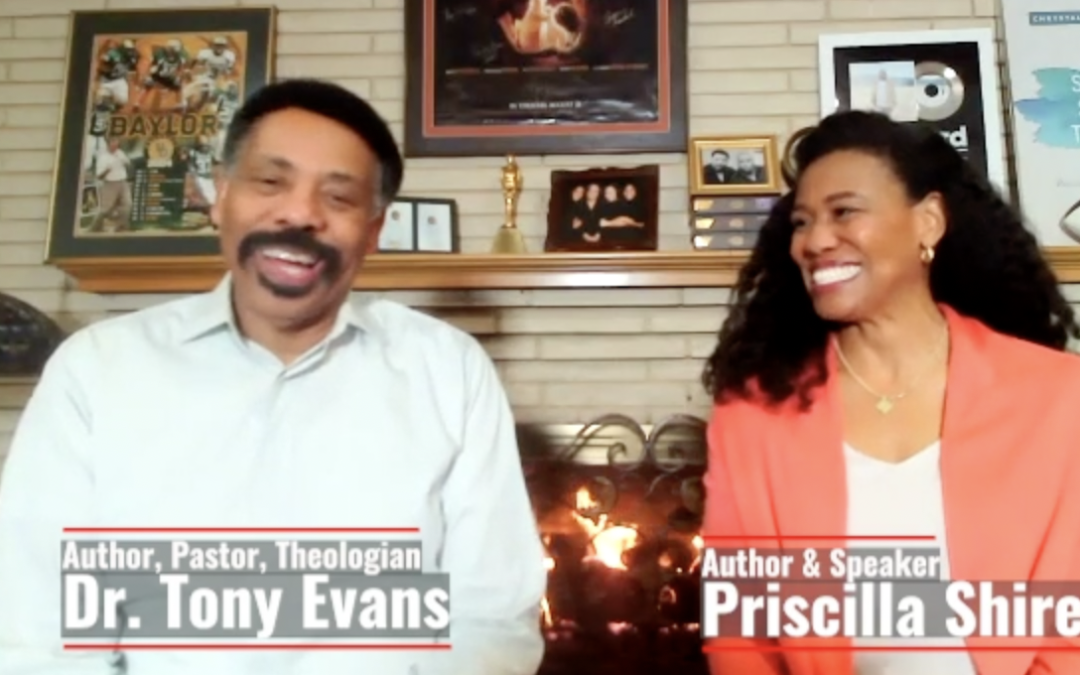






 Back home, Benjamin is sure he would be killed. His family is scattered across the eastern DR Congo, too afraid to return to their house but tired of living in limbo. Recently his daughter texted him, “Dad, I want to go back home. If they will kill me, let them kill me.”
Back home, Benjamin is sure he would be killed. His family is scattered across the eastern DR Congo, too afraid to return to their house but tired of living in limbo. Recently his daughter texted him, “Dad, I want to go back home. If they will kill me, let them kill me.”